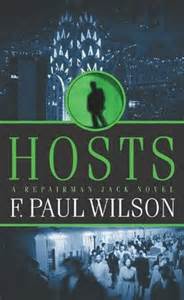How to Write a Novel Series
Embarking on a Journey
I just completed my third novel, “Shadows Kill.”
Hooray!
It is the first in what will be a series. Each book in the series will have the word “shadows” in the title, and the same characters will be in each book in that series.
It’s only natural that I do this since I have always gravitated, as a reader, to authors who have long-standing series. I enjoy getting to know the characters. I become invested in their lives and I can’t wait to find out what happens to them in the next book.
It began, for me, with the Travis McGee series written by John D. MacDonald. There have been many since then including Lee Child and his “Jack Reacher” series; Robert Parker and the “Spencer” novels; and today James Lee Burke and his “Dave Robicheaux” series. Each one has been a pleasure. Each one has brought sadness when the series ends.
About a year ago I came across an author by the name of F. Paul Wilson. He wrote a series called the “Repairman Jack” novels. All told there must be twenty novels, at least, in this series, and each one builds on the past, so if you come in the middle of the series you might be just a bit bewildered. But if you start at the beginning and read the entire series I promise you it is a marvel to behold.
And that brings me to this article.

Repairman Jack
F. Paul Wilson did a masterful job of building his series. I can only assume that before he wrote the first word in the first novel, he sat down and outlined the entire series. Nothing else adequately explains how he foreshadowed so beautifully. Step A is related to Step Z because of Steps B through Y. Each step is crucial to the telling of the story, and the ultimate conclusion would not have made sense if he had not perfectly intertwined every facet of every novel with the other facets.
It is writing transformed to a craft and I am jealous of his ability.
So, of course, I had to dissect his novels and determine how, exactly, he did what he did, because his end result is what I want my end result to be when I finish my series of “Shadows” novels.
Here is what I noticed.

CHARACTERS
All good series are character-driven. More important than the actual plot are the lives of the main characters. A writer can never forget that main point. You could tell the greatest story ever told, but if the readers cannot connect on an emotional level with the characters, your story is going to be lost in translation.
On a related note, develop sidekicks for your protagonist. Bad guys come and they go, but the protagonist and his/her cohorts are the ones who keep us, as readers, coming back.
KNOW WHERE YOU ARE HEADING
Some series have no apparent end game. The series ends when the author dies or stops writing, but a traditional ending was never planned and never happens. That’s all well and good.
However, if you plan a series like F. Paul Wilson, then you need to know what the end game looks like. What is ultimately going to happen to the main character after the tenth and last book in the series? Will good triumph over evil? Will the main character die and all hell freeze over? This is where pre-planning comes in. Before you write that first word you have to know what the last word in the last novel is going to say.
GROWTH MUST HAPPEN
We all grow. Some of us grow kicking and screaming. Others grow smoothly without breaking a sweat, but we all grow as human beings.
So, too, must your main characters. Readers are not, for the most part, stupid. If the characters are not developing during the series, if they are not becoming more fascinating, readers will lose interest.
COMPLETE EACH STORY
You may have twenty books planned for your series but remember that each book is an individual piece of literature. It must tell a complete story. It must be able to stand alone.
Of course it is related to all the others in that series, but one of your goals as a writer is that a book-buyer can pick up any of the books in your series and read it and be satisfied. This might be the only flaw in the series written by Wilson. It can be a bit confusing if you pick up book number five and try to make sense of it.

Would you consider writing a novel series?
LINKS AND CLUES
When we were kids we used to play a game called “Follow the Path.” It was kind of a tracker game. The kid who was “it” was given five minutes to go hide somewhere, but while he was heading to his hiding place, he had to leave clues along the way. The first person to follow the clues and find the other person won.
I have no idea about the origin of the game. I don’t know if we invented it or if it’s been played for years around the world. All I know is that we enjoyed it, and if the clues were bad then the “it” person could stay hidden until his next birthday.
In a series of related novels, there must be links and clues to keep your readers on the right path. We, as writers, want to lead them along toward the ultimate goal. We want to explain just enough to keep them interested. We want to give them just enough information so that they are curious for more. We want to build a long story from the ground up, and allow the readers to be a part of that construction.
Without links and clues, you might as well drop your readers off in the middle of the desert and tell them good luck in finding their way home.
DETERMINE TIMELINE
Welcome to my personal bugaboo. I continually catch myself making a timeline error, and that’s in a single book. I can’t imagine Wilson writing a series of books that span thirty years, and keeping everything orderly and consistent.
Determining timeline not only means you must choose the time in history that your book will cover (present time, twenty years ago?) but you must keep the timeline accurate within the book….the 20th, the 22nd, the 30th.
One word of advice: keep a working timeline on a separate document, and jot down important events at every time interval. That way you will have a reference sheet to help clarify matters and maintain accuracy.
RAISE THE STAKES IN EVERY BOOK
Again, Wilson was masterful in raising the stakes. He introduced the antagonist with a brief mention in the first book of the series, just enough to establish a sinister undercurrent of tone. With each book the tension rose so that, by the time the antagonist is actually “seen” and “identified,” the tension is almost unbearable.
If you are going to write a series of related novels, then give your readers a reason to come back for more. There must be struggle and the promise of more struggle. There must be tension and the promise of more tension. There must be a threat that escalates.

And If You Do All Those Things…..
Then you just might be successful writing a series.
Just might be successful….
And that leads us to a discussion about levels of success, and about that just let me say that writing any novel is a standard of success to be proud of.
So happy writing to you all.
Now, if you’ll excuse me, I need to get busy on the second book in my series, “Shadows Over Innocence.”
2015 William D. Holland (aka billybuc)
“Helping writers to spread their wings and fly.”










